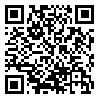Volume 16 - Special Issue on Cognitive Sciences
BCN 2025, 16 - Special Issue on Cognitive Sciences: 193-204 |
Back to browse issues page
Download citation:
BibTeX | RIS | EndNote | Medlars | ProCite | Reference Manager | RefWorks
Send citation to:



BibTeX | RIS | EndNote | Medlars | ProCite | Reference Manager | RefWorks
Send citation to:
Zabihi A, Mazaheri M, Rostami R, Sadeghi M S, Hosein-Zadehbahreini N, Hallajian A et al . Relational Impact of Emotional Stimuli on Putative Mirror Neuron Activity: A Transcranial Magnetic Stimulation Study. BCN 2025; 16 (S1) :193-204
URL: http://bcn.iums.ac.ir/article-1-2618-en.html
URL: http://bcn.iums.ac.ir/article-1-2618-en.html
Atefeh Zabihi1 

 , Mohammad-Ali Mazaheri1
, Mohammad-Ali Mazaheri1 
 , Reza Rostami1
, Reza Rostami1 
 , Mansoureh Sadat Sadeghi1
, Mansoureh Sadat Sadeghi1 
 , Narjes Hosein-Zadehbahreini2
, Narjes Hosein-Zadehbahreini2 
 , Amir-Homayoun Hallajian3
, Amir-Homayoun Hallajian3 
 , Vahid Nejati *1
, Vahid Nejati *1 




 , Mohammad-Ali Mazaheri1
, Mohammad-Ali Mazaheri1 
 , Reza Rostami1
, Reza Rostami1 
 , Mansoureh Sadat Sadeghi1
, Mansoureh Sadat Sadeghi1 
 , Narjes Hosein-Zadehbahreini2
, Narjes Hosein-Zadehbahreini2 
 , Amir-Homayoun Hallajian3
, Amir-Homayoun Hallajian3 
 , Vahid Nejati *1
, Vahid Nejati *1 


1- Department of Psychology, Faculty of Education and Psychology, Shahid Beheshti University, Tehran, Iran.
2- Department of Diagnostic and Cognitive Neuropsychology, Faculty of Science, Tübingen University, Tübingen, Germany.
3- Department of Psychology, Faculty of Psychology and Education, University of Tehran, Tehran, Iran.
2- Department of Diagnostic and Cognitive Neuropsychology, Faculty of Science, Tübingen University, Tübingen, Germany.
3- Department of Psychology, Faculty of Psychology and Education, University of Tehran, Tehran, Iran.
Abstract:
Introduction: Mirror neurons’ function is thought to be enhanced by emotion processing. There is some evidence that the valence of an emotional presentation (positive or negative) can influence subsequent mirror neuron activity differently. Additionally, mirror neurons are claimed to provide the mechanism necessary for the embodied simulation of others’ mental states. Therefore, there is an assumption that relational emotion processing may manipulate mirror neuron functions.
Methods: Via transcranial magnetic stimulation (TMS) of the primary motor cortex (PMC) and electromyography recording from contralateral hand muscles, 20 participants viewed videos of either a static hand or a transitive hand action preceded by either neutral or general (negative and positive) and relational (negative and positive) images.
Results: Corticospinal excitability facilitation during action observation was significantly greater following the positive general than negative general emotion stimuli. Regarding relational emotions, we observed an increased mirror neuron system (MNS) activity following relational negative compared to relational positive, relational negative compared to general negative, and general positive compared to relational positive stimuli.
Conclusion: This finding supports the assumption that relational content interferes with mentalizing capacity.
Methods: Via transcranial magnetic stimulation (TMS) of the primary motor cortex (PMC) and electromyography recording from contralateral hand muscles, 20 participants viewed videos of either a static hand or a transitive hand action preceded by either neutral or general (negative and positive) and relational (negative and positive) images.
Results: Corticospinal excitability facilitation during action observation was significantly greater following the positive general than negative general emotion stimuli. Regarding relational emotions, we observed an increased mirror neuron system (MNS) activity following relational negative compared to relational positive, relational negative compared to general negative, and general positive compared to relational positive stimuli.
Conclusion: This finding supports the assumption that relational content interferes with mentalizing capacity.
Keywords: Mirror neuron system (MNS), Emotion processing, Relational emotions, Mentalization, Transcranial magnetic stimulation (TMS)
Type of Study: Original |
Subject:
Cognitive Neuroscience
Received: 2022/12/6 | Accepted: 2023/01/9 | Published: 2025/03/18
Received: 2022/12/6 | Accepted: 2023/01/9 | Published: 2025/03/18
Send email to the article author
| Rights and permissions | |
 |
This work is licensed under a Creative Commons Attribution-NonCommercial 4.0 International License. |





